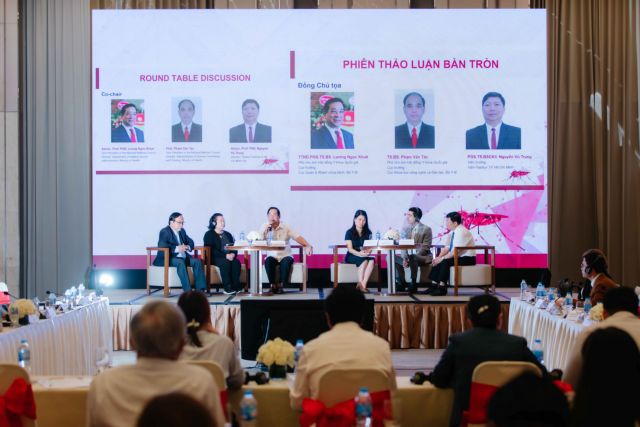 Society
Society

 |
| A panel discussion at the workshop. — Photo courtesy of the organiser |
HCM CITY — More than 100 health experts and scientists shared their experience and lessons learnt in dengue prevention and control at a workshop organised by the Pasteur Institute in HCM City on September 23.
The workshop aimed to share the latest updates on the on-ground situation and plans for the prevention and control of dengue in Việt Nam.
At the event, participants from both public and private sectors, local and international, exchanged experiences and expertise in dengue prevention and vector control in the region.
“During 2020 and 2021, there appeared to be a decrease from previous years in the total number of dengue cases due to the advent of COVID-19 together with specific COVID-19-related public health and societal measures, such as stringent 5K anti-pandemic measures and vaccinations. But this year, Việt Nam has so far recorded a sharp increase in dengue fever including a high number of severe cases to be hospitalised,” said Dr. Nguyễn Thanh Hùng, Director of HCMC’s Children’s Hospital 1.
Under the direction of the Ministry of Health, HCM City People’s Committee and HCM City Department of Health, three pediatric hospitals – Children’s Hospital 1, Children’s Hospital 2 and HCM City Children’s Hospital – have prepared treatment facilities to proactively fight against high-risk dengue fever outbreaks.
“In Children's Hospital 1 alone, we expanded more medical facilities to admit and treat severe dengue patients. Our hospitals always try to ensure the supply of fluids, professional support to treat dengue patients and have successfully saved the lives of many severe cases,” said Hùng.
Director of HCM City’s Pasteur Institute Nguyễn Vũ Trung said that dengue infections were caused by four virus serotypes. A secondary infection with a different serotype can potentially increase the risk of developing severe dengue disease. In other words, subsequent infections can put individuals at a greater risk for severe dengue illnesses.
“However, whether dengue fever becomes more severe or not depends much on timely detection, diagnosis and treatment guidelines. Above all, the prevention of dengue fever should be regular and long-term, as well as needing the efforts of the people, the community and the society,” Trung said.
Some countries have approved dengue vaccines, which are considered one of the sustainable and long-term solutions to prevent dengue fever, according to experts.
The health ministry reported an increase in the number of dengue cases and deaths compared to the same period last year, with roughly 211,388 dengue cases and 87 deaths since earlier this year. Dengue infections, in both children and adults, have recorded a sharp rise, with a high rate of severe cases that have resulted in fatalities. The spread of dengue fever has shown signs of increasing nationwide, especially in southern localities and HCM City. — VNS




